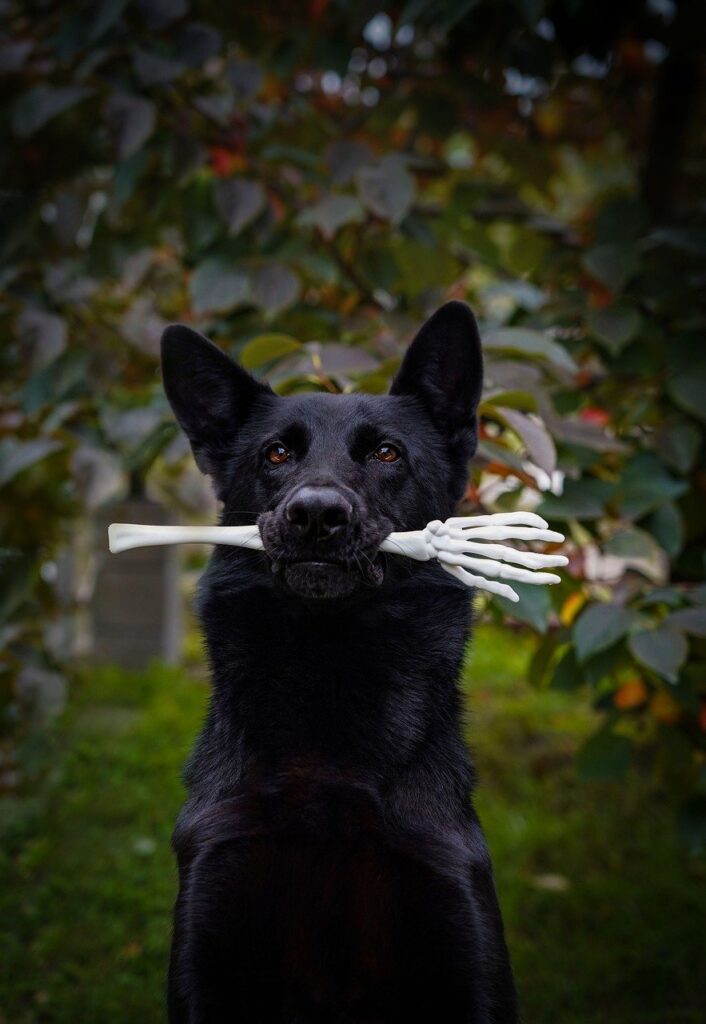Can Dogs Eat Rice? – Yes, They can
Dogs can indeed enjoy rice as a part of their diet. This grain is a fantastic source of energy and provides essential nutrients they need. It’s often found in commercial dog foods, but it can also be a homemade addition to their meals, especially if they have an upset stomach. Brown rice is packed with natural fibers, whereas white rice is easier to digest. Just remember, moderation is key to maintaining a healthy balance.
Can Puppies Eat Rice?
Just like adult dogs, puppies can eat rice, but it’s crucial to introduce it slowly into their diet. The digestive system of a puppy is still developing, and they require a specific balance of nutrients to grow properly, so it’s essential to ensure that rice doesn’t replace other vital ingredients.
Things to consider when feeding rice to puppies?
When introducing rice to a puppy’s diet, start with small amounts and observe how they react. If your puppy seems comfortable with it and shows no sign of digestive upset, you can make it a more regular part of their meals. Always serve rice alongside a good protein source and consult with your vet to ensure it fits into their nutrition plan.
Nutritional Benefits of Rice for Dogs – Why Rice is good for Dogs
Easy Digestion
Rice is gentle on a dog’s stomach, making it an excellent choice for those with sensitive digestion or during times of gastrointestinal distress.
Energy-Boosting Carbohydrates
Rice is a great source of carbohydrates, which provide dogs with the energy they need to stay active and happy.
Gluten-Free
For dogs with gluten intolerances or allergies, rice is a safe grain option since it is naturally gluten-free.
Source of Vitamins
Depending on the type, rice can have vitamins like vitamin D, B vitamins, and minerals such as iron, which are beneficial for your dog’s overall health.
Dietary Fiber
Brown rice in particular is rich in fiber, which helps with digestive health and can aid in maintaining a healthy weight.
Potential Allergies: Can Dogs Be Allergic to Rice?
While rice allergies in dogs are rare, they can occur. If your dog has never had rice before, it’s important to start with small amounts to monitor their reaction.
Symptoms of Rice Allergies in Dogs
- Skin Irritation: Look out for excessive itching or redness.
- Ear Infections: Frequent ear infections can be a sign of a food allergy.
- Gastrointestinal Upset: Symptoms like vomiting or diarrhea after eating rice may indicate an allergy.
What to Do If Your Dog Shows Symptoms?
- Consult Your Vet: A professional can provide an appropriate diagnosis and treatment plan.
- Elimination Diet: Under vet supervision, removing rice from your dog’s diet may be recommended to see if symptoms improve.
- Alternative Grains: If rice is indeed the culprit, your vet may suggest other grain options that may not cause an allergic reaction.
Recommended Amount: How Much Rice Can a Dog Consume?
The amount of rice your dog can consume depends on its size, breed, and daily caloric needs. Generally, rice should not make up a large portion of a dog’s diet but rather be supplemented as part of a balanced meal. For specific recommendations, it is best to consult with your vet.
Things to Consider When Feeding Rice to Dogs
Rice should be given to dogs in moderation as too much can lead to weight gain. Furthermore, ensure the rice is cooked without spices, salt, onions, or garlic, which are harmful to dogs. Also, too much rice can cause nutrient imbalances, so it should be part of a well-rounded diet.
How to Feed Rice to Dogs: A Quick Guide
Integrating rice into your dog’s diet can be done safely and is often a treat for them. It’s a versatile food, easily mixed with their regular dog food or paired with some protein and vegetables for a wholesome meal.
Simple Cooked Rice
Cook plain white or brown rice until it’s soft. Ensure no spices or seasonings are added and serve it as a side dish with their main meal.
Chicken and Rice Dog Food
Boil lean chicken breast and mix it with cooked rice; this is a staple meal for dogs with stomach issues. Just make sure the chicken is unseasoned and has no bones.
Vegetable Rice Medley
Mix cooked rice with some dog-safe steamed vegetables like carrots or peas for added nutrients. This colorful dish is sure to entice your furry friend.
Conclusion
Rice is a safe and nutritional addition to a dog’s diet when served in appropriate amounts. Whether your dog is a puppy or an adult, rice can provide energy, help with digestion, and contribute to overall health when integrated correctly into their diet. Always introduce new foods gradually and in consultation with your vet to ensure your dog remains in tip-top shape!



